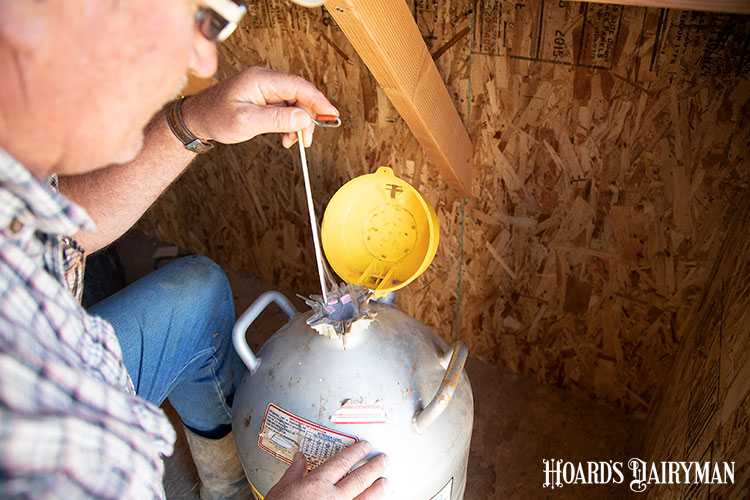
For those of us on dairy farms, the thought of artificial insemination becoming illegal sounds like a dreadful story straight from the spooky plotlines of the “Twilight Zone.” Of course, that television show focused on science fiction. However, the potential of artificial breeding becoming illegal could move from the fiction to the nonfiction section should a ballot initiative in Colorado be enacted by the state’s citizens.
The ballot proposal would revise Colorado’s state statutes, specifically section 18-9-201. It would start by calling an “animal” any living “nonhuman creature.” The revised definition would then state “. . . not limited to, a dog, a cat, a horse, livestock . . .” In naming dogs, cats, and horses, the instigators of this particular ballot initiative want to tug at the heartstrings of animal lovers far beyond the animals now covered by this law that include a certified working police dog, a working police horse, and a service animal. Lumping in livestock is the lure to a greater endgame.
The current Colorado state law that the ballot initiative looks to revise then goes on to describe some despicable sex acts between humans and animals. With that scare tactic set, those with animal rights agendas take the next step: “Sexual act with an animal also includes any intrusion or penetration, however slight, with an object or part of a person’s body into an animal’s anus or genitals.”
Would that portion of the proposed ballot initiative make artificial insemination illegal?
It’s hard to say “no” to that question.
Long live cows
If this proposal passes in the polling booths, Colorado dairy farmers may have a herd of pets on their hands. Section 3.5 of the proposal contains those linguistics: “‘Natural lifespan’ for the following species shall be explicitly defined here based on statistical estimates: a cow lives to 20 years, a chicken lives to 8 years, a turkey lives to 10 years, a duck lives to 6 years, a pig lives to 15 years, a sheep lives to 15 years, a rabbit lives to 6 years.”
With those definitions set, the next section would have the teeth of the law. “Any person who slaughters livestock in accordance with accepted agricultural animal husbandry practices does not violate the provisions of subsection (1) of this section so long as the animal has lived ONE QUARTER OF THEIR NATURAL LIFESPAN based on species, breed, and type of animal and the animal is slaughtered in such a way that the animal does not needlessly suffer.”
If passed, that cow or steer would need to live at least 5 years should it be on a Colorado farm.
There is another ballot initiative looming of a similar nature in Oregon. However, it does not cut near as deep or precisely as the Colorado proposal.
However, in both cases, it steps up the game by defining some common animal care practices as “cruelty to animals.” This language would criminalize farmers, ranchers, veterinarians, and A.I. technicians who use commonly accepted animal husbandry practices to care for animals. Those practices could include calving assistance, reproductive practices such as artificial insemination and pregnancy diagnosis, or even spaying and neutering cats and dogs.
Among 14 unique states
These ballot initiatives, if passed, would become part of state law. Only 14 states have a ballot initiative process where proposals passed at the polling place immediately become state law. In addition to Colorado and Oregon, the list of states include: Arizona, Arkansas, California, Idaho, Missouri, Montana, Nebraska, North Dakota, Oklahoma, South Dakota, Utah, and Washington. There are another 12 states that either have a ballot initiative or referendum process, but those actions require further steps before becoming law.
Because the ballot initiative process in the 14-state group provides the pathway of least resistance by taking it straight to the polls and bypassing state legislatures, fringe groups such as animal rights activists push forward their agendas in these states first. If passed in a few states, it gives these groups the “credibility” to find sympathizers in nonballot initiative states, or even those on the federal level, to give credence to their agendas and make more like-minded laws.
And that’s why repelling the devious proposal in Colorado matters to all of those in livestock agriculture . . . even if your address isn’t within Colorado’s border.
A coalition of Colorado agriculture groups are working to oppose this ballot proposal. To learn more go to: coloradansforanimalcare.com.








